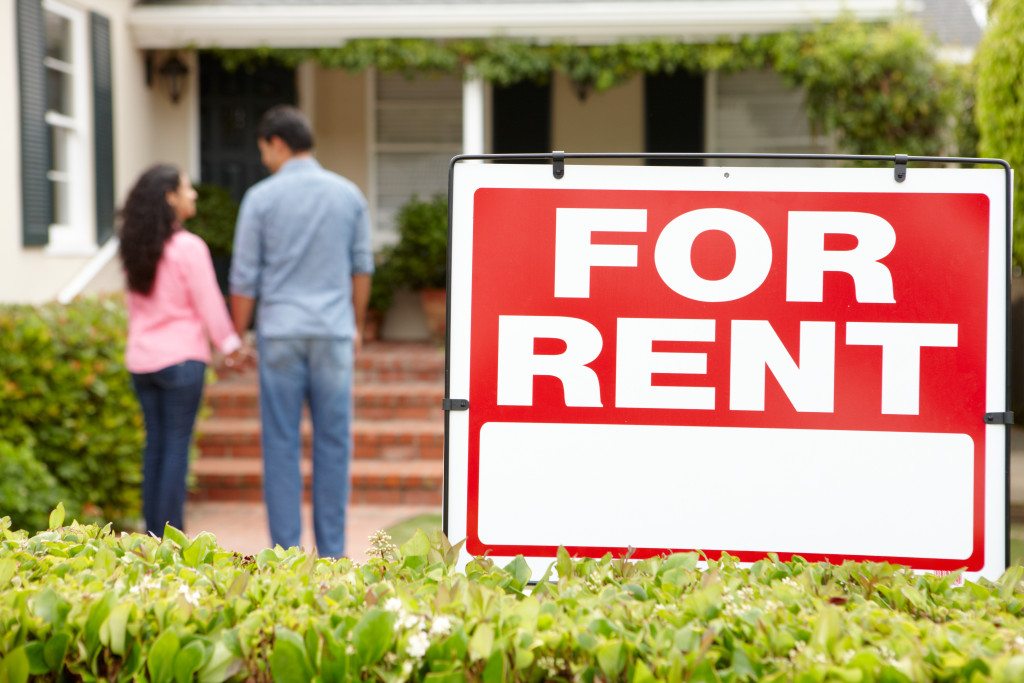- Becoming a landlord can be an excellent long-term investment, providing a steady stream of income and the potential for increased value over time.
- Understand local laws regarding tenant privacy and safety, tenant screening procedures, rent control ordinances, etc., to protect your rights as a landlord.
- Make repairs such as fixing appliances and replacing old carpets or flooring to attract higher-quality tenants.
- Hiring professional rental management services can help with tenant screening, maintenance requests, rent collection, and other essential tasks related to being a landlord.
Renting out your property is a great way to generate a steady and passive income. Owning rental property can be an excellent long-term investment, especially in markets with high tenant demand. Not only does renting provide you with a steady income stream, but it also offers additional benefits, such as the ability to build equity and the potential for increased value over time.
Statistics show that rental properties are becoming increasingly popular among investors. According to the US Census Bureau, the number of renter households has grown significantly faster than homeowner households over the past decade – increasing by an average of 1.9 million per year. Risk-averse investors have been drawn to rental properties due to their comparatively lower risk versus other investments like stocks or mutual funds. In addition, the National Multifamily Housing Council (NMHC) recently reported that apartment vacancy rates are at historic lows, indicating strong demand for housing – another testament to the resiliency of rental properties during uncertain times.
It might be a good idea to rent out your property if you have the means to do so. However, preparations should be made before entering the rental market. Here are a few tips to help you.
Making It a Business
Renting out your property is a business, so you must familiarize yourself with all rules and regulations to avoid legal issues. In addition, understanding the laws governing rental property can help you protect your rights as a landlord. Before renting out your property, ensure you know the local rules regarding tenant privacy and safety, tenant screening procedures, rent control ordinances, security deposit limits, and other relevant regulations.
It’s also essential to understand the lease agreement or rental agreement used when renting your property. This document should clearly outline the terms of the rental period, including the rent amount, due date, and late fees. It should also lay out expectations for tenants and landlords, such as pet policies, noise restrictions, smoking rules, maintenance requirements, etc. By ensuring all of these details are covered in the contract, you can minimize any potential issues.
Finally, it’s crucial to stay informed on recent changes in legislation that could impact landlords or renters. For example, new tax incentives or deductions may be available for landlords that were not previously offered. Keeping up with local or state law updates can help you stay ahead of these changes and remain compliant with all applicable regulations.
Upgrade the Property

It’s also essential to ensure your property is in good condition before accepting tenants. Investing a little time and money into minor upgrades can go a long way when attracting tenants. Here are a few things you can do to make the home a suitable environment for your tenants:
Maintenance and Repairs
Tenants do not want to move into a rundown property. It’s essential to ensure all significant investments are taken care of before welcoming tenants in by making necessary repairs, such as fixing broken appliances, addressing plumbing issues, and replacing old carpets or flooring.
Upgrading Amenities
You may also consider upgrading specific amenities, such as adding new fixtures or installing energy-efficient appliances. Doing so can help you attract higher-quality tenants who appreciate the convenience of modern features. Additionally, these upgrades may even result in more rental income due to increased tenant demand.
Safety and Security
It’s essential to take safety measures when renting out your property. For example, installing working smoke and carbon monoxide detectors throughout the home can help keep your tenants safe. Additionally, it’s essential to make sure that all exterior doors and windows are secure with working locks. These measures can go a long way in preventing unnecessary accidents or break-ins.
Smart Home Technology
Investing in some smart home technology can also help make your rental property more attractive to tenants. Smart locks, thermostats, lighting systems, and security cameras are all cost-effective ways to provide tenants convenience and peace of mind.
Hire a Property Manager

It can be challenging to handle all the necessary tasks to manage a rental property, especially if you have multiple tenants to prioritize. Fortunately, hiring professional rental management services can help lighten the load. A reputable property manager can help you with tenant screening, maintenance requests, rent collection, and other essential tasks related to being a landlord.
When looking for a property manager, you must consider their reputation, experience, and expertise. Additionally, compare different services to find the one that best meets your needs.
Final Thoughts
Renting out your property is a great way to generate a steady income while potentially building equity over time. It’s essential to take all necessary steps, such as understanding regulations, making upgrades, and hiring a property manager to maximize success when entering the rental market. By accepting these measures now, you can help ensure that your real estate investment pays off for years to come.


